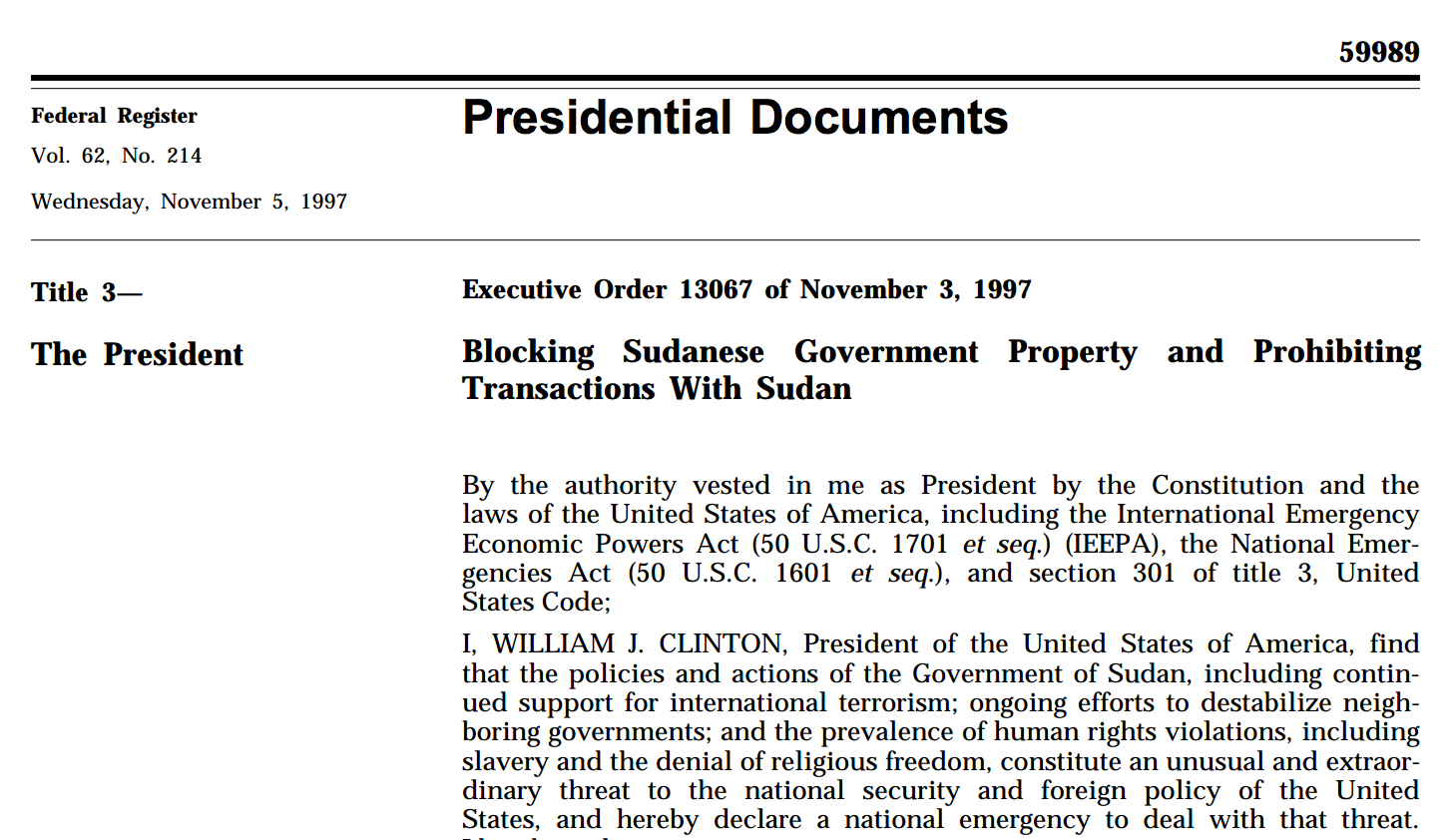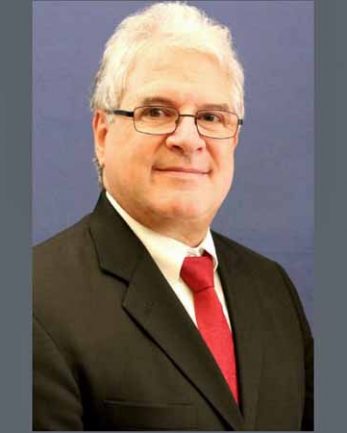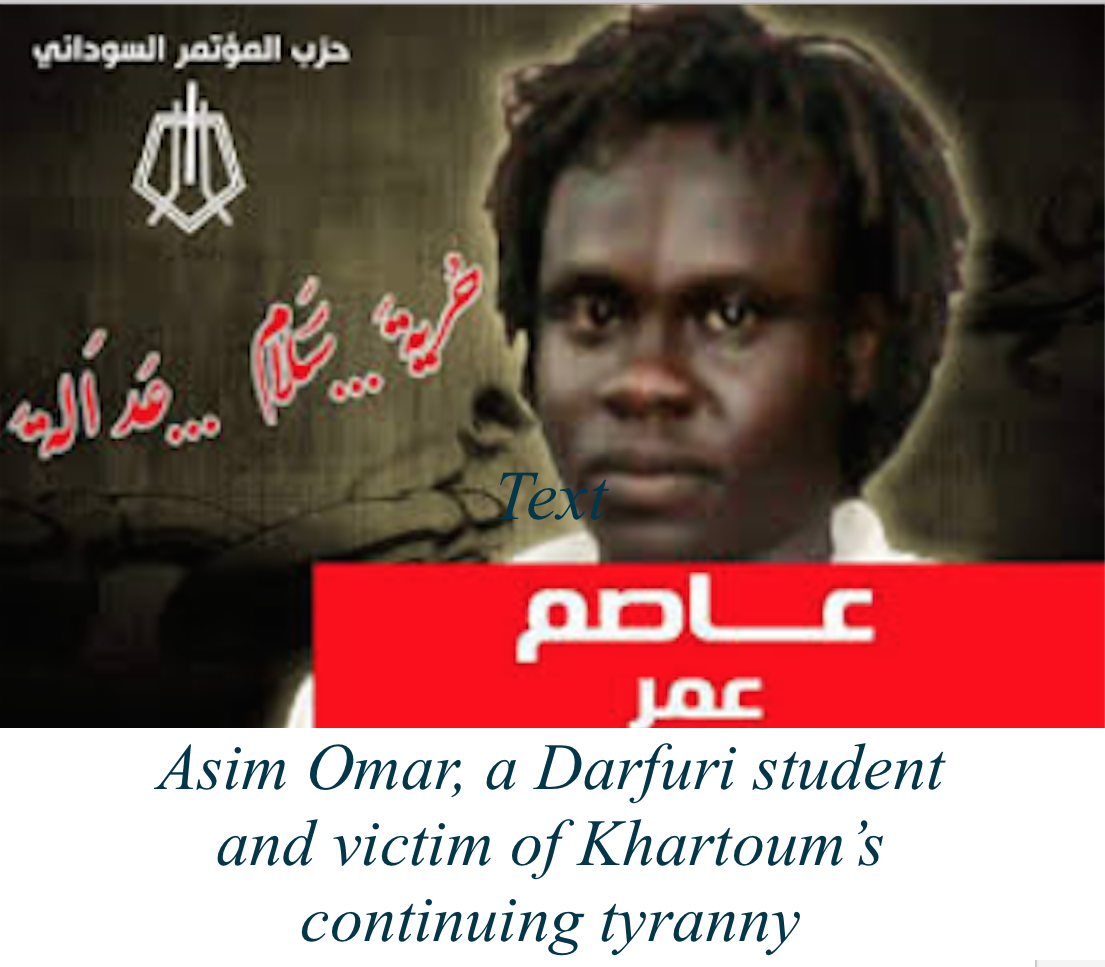Trump Administration Lifting of U.S. Economic Sanctions on the Khartoum Regime Will Assist Tyranny
Eric Reeves | September 2, 2017 | http://wp.me/p45rOG-268
In January 2017—as the Obama administration was cynically, if provisionally, lifting longstanding U.S. economic sanctions against the National Islamic Front/National Congress Party regime in Khartoum—Amnesty International was reporting on the increasingly frequent and brutal human rights abuses endured by Darfuri students in Sudanese universities, particularly in Khartoum and Omdurman:
“UNINVESTIGATED, UNPUNISHED” | HUMAN RIGHTS VIOLATIONS AGAINST DARFURI STUDENTS IN SUDAN | Amnesty International, January 2017 | https://www.amnesty.org/download/Documents/AFR5448482017ENGLISH.pdf (Excerpt from the Executive Summary below)
Radio Dabanga has recently reported on two significant incidents that given heightened relevance to the findings of Amnesty’s report.
None of this, however, seems to register with the current U.S. Charge d’Affaires in Khartoum, Steven Koutsis, whose chief recent tasks have been to utter soothing words to the Khartoum regime about the inevitability of a permanent lifting of U.S. economic and financial sanctions by the Trump administration come October.
Koutsis seems either profoundly ignorant of the reasons the sanctions were originally imposed or simply mendacious. His comments about the origin of sanctions was first reported by Agence France-Presse (El Daien, East Darfur | June 24, 2017), but subsequently by many other news organizations. Referring to those expressing grave concern about Khartoum’s increasing repression and continuing violent suppression of political dissent, religious intolerance, its abysmal human rights record, and its continuing deployment of brutal militia forces in Darfur and elsewhere in Sudan, Koutsis declared:
“None of these other issues were the point of sanctions, and none of these other issues, therefore, should be linked to the lifting of sanctions.”
Here Koutsis is so egregiously in error that we must question his basic diplomatic competence in dealing with the Khartoum regime. U.S. economic sanctions imposed by President Clinton in 1997 are explicit about why they were being imposed; in the Preface of his Executive Order, Clinton declared:
The language here could hardly be clearer
Steven Koutsis represents the Trump administration in Khartoum as senior U.S. Charge d’Affaires; he is either extraordinarily ignorant or a liar
That the most serious human rights abuses continue to be common practices by the NIF/NCP regime throughout Sudan has been thoroughly documented by the world’s most distinguished human rights groups for over 28 years. Although for years Khartoum has allowed no independent human rights reporting in Sudan, Amnesty International and Human Rights have proved intrepid in securing interviews with witnesses inside Sudan and from those who have escaped. In addition to the January 2017 report on Human Rights Abuses Against Darfuri Students, we have as well:
• “Mass Rape in Darfur: Sudanese Army Attacks Against Civilians in Tabit” | Human Rights Watch, February 11, 2015 | http://www.hrw.org/news/2015/02/11/sudan-mass-rape-army-darfur
• “Men With No Mercy”: Rapid Support Forces Attacks Against Civilians in Darfur, Sudan,” Human Rights Watch | September 9, 2015 | https://www.hrw.org/report/2015/09/09/men-no-mercy/rapid-support-forces-attacks-against-civilians-darfur-sudan
• “Scorched Earth, Poisoned Air: Sudanese Government Forces Ravage Jebel Marra, Darfur,” Amnesty International | 109 pages; released September 29, 2016 | http://www.amnestyusa.org/research/reports/scorched-earth-poisoned-air-sudanese-government-forces-ravage-jebel-marra-darfur
Beyond this, we have the distinguished and relentless reporting by Sudan Tribune (Paris) and Radio Dabanga (Hilversum, The Netherlands). Recent dispatches from Radio Dabanga in particular give clear evidence of how telling the Amnesty report of January 2017 remains—and how despicable is the impending decision to lift sanctions on a regime that wages constant war on its own people and that is guilty of the worst human rights abuses, including serial genocide:
• Two students die from wounds, third stabbed to death in Omdurman | Radio Dabanga | September 1, 2017 | OMDURMAN | https://www.dabangasudan.org/en/all-news/article/student-stabbed-to-death-in-omdurman-dormitory
(UPDATE 18:30) Ashraf El Hadi and Mohamed Ali Abdallah succumbed to their injuries they sustained during a clash in the dormitory of the Omdurman Islamic University on Thursday morning. This means the incident, which is being investigated, has caused the death of three students.
One of the doctors who supervised Mohamed Ali in the Aliya hospital in Omdurman said this in an audio recording. Abdallah’s brain stopped working, according to the doctor. El Hadi died in the private military hospital in Omdurman.
Stabbing
Jaafar Mohamed Abdelbagi, nicknamed Jifara, was stabbed to death with a knife in his student dormitory in Omdurman on Thursday morning. Abdallah and El Hadi were the two other students who sustained injuries during the incident. The incident occurred in El Shigla dormitory of the Omdurman Islamic University, where the police arrived to force the students out with tear gas and beating them with batons. The man, also a student, suspected of the murder surrendered himself to the police. Investigations into the incident are ongoing.
Abdelbagi was from South Darfur and studied at the Faculty of Commerce of El Nilein University.
Yesterday two reports were circulated about the incident. The first report stated that the incident was caused by students supportive of the ruling National Congress Party (NCP) who attacked Darfuri students in their rooms. Another report stated that it was a criminal incident resulting from personal differences. Yesterday, students told Radio Dabanga that at least two of the injured were Darfuri students who are receiving treatment in the hospital.
• Mass demonstrations follow Sudanese student guilty verdict | Radio Dabanga | August 30, 2017 | KHARTOUM | https://www.dabangasudan.org/en/all-news/article/mass-demos-after-sudanese-student-verdict
Sudanese students took to the streets in the national capital of Khartoum yesterday in protest against a court verdict condemning Asim Omar, a student at Khartoum University who was on trial on capital charges for allegedly killing a policeman. The court has postponed the verdict several times, and opposition voices have called for Omar’s release.
Answering a call by opposition forces, mass demonstrations broke out after the court ruled Omar guilty, which means he faced the death penalty. The demonstrations swept across El Soug El Arabi, with protestors carrying a picture of Omar and shouting slogans rejecting the court’s ruling (see videos and pictures below). The head of Omar’s defence team, Mohamed El Hafiz, said that the court postponed the final verdict to September 24 at the request of the defence and with the consent of the relatives of the deceased. El Hafiz described the ruling as “surprising and contrary to the estimates of the defence which expected an acquittal of the accused.”
He said that the ruling was “full of flaws and mistakes and that the defence is studying and addressing it through the four litigation stages including review and then challenging the ruling before the Appeal and Constitutional Courts.” He asserts that “the defence has sufficient reasons to challenge the ruling.”
He said aid that the testimony of the witnesses contradicted the investigation and trial, which is sufficient grounds for acquitting the accused. “The question of criminal intent contained in the ruling was not available, explaining that the defence considered that the person in question is not Omar and that the indictment has not provided technical proof or reports.”
Amnesty and pardon
El Hafiz said that the defence managed to talk with the relatives of the dead policeman who agreed to sit-down to discuss the possibility of amnesty and pardon. Hundreds of students demonstrated at the University of Khartoum in protest against the ruling against Omar amid unprecedented police and security crowds in front of the university.
Student anger
A student leader at the University of Khartoum told Radio Dabanga that a state of anger and indignation prevailed among the students because of the judge’s sentence of student Asim Omar for murder, which they considered as a clear targeting of students. He explained that a number of speeches were organised at the headquarters of the main university rejecting the ruling against Omar and calling for escalation of the protests. Yesterday the security authorities arrested journalist Omar El Farouq and other activists during their coverage of Omar’s ruling in Khartoum and the protests that followed the verdict. The police came to the headquarters of the court where hundreds gathered and dispersed them by force at El Hurriya Street.
Arrest
Asim Omar was held in May last year, against the backdrop of student protests at his university. “Omar did not know the reasons for his arrest and was not informed of the charges against him. He was promised to be released on bail, which later turned out to be misleading,” one of his lawyers told Radio Dabanga at the time. Later he was told that he was charged with killing a police officer during the protests. He was detained for more than 14 months in detention centres of Sudan’s security apparatus and Kober Prison in Khartoum North, before he was brought to trial.
• Sudan’s opposition calls for mass protest against trial of Darfuri student | Radio Dabanga | August 28, 2017 | KHARTOUM | https://www.dabangasudan.org/en/all-news/article/sudan-s-opposition-calls-for-mass-protest-against-trial-of-darfuri-student
The Sudanese opposition has called for a mass rally in front of the North Khartoum Criminal court on Tuesday afternoon, when the judge will will deliver his verdict in the case of Asim Omar, a student at Khartoum University, who is facing capital charges for allegedly killing a policeman. The opposition forces allied by the Sudan Call [Sudan Appeal] held a press conference at the premises of the National Umma Party (NUP) in Omdurman on Sunday, in which they called on “all Sudanese” to protest the trial against Omar.
Asim Omar was held in May last year, against the backdrop of student protests at his university. “Asim did not know the reasons for his arrest and was not informed of the charges against him. He was promised to be released on bail, which later turned out to be misleading,” one of his lawyers told Radio Dabanga at the time. Later he was told that he was charged with killing a police officer during the protests. He was detained for more than 14 months in detention centres of Sudan’s security apparatus and Kober Prison in Khartoum North, before he was brought to trial. According to Sarah Nugdallah, NUP Secretary-general and spokeswoman, the case of Omar is a not a criminal issue but a political one.
“The Sudanese justice system is selective and used only to settle cases against political opponents, in an ugly exploitation of the laws and its enforcement bodies,” she said, and warned against “targeting Darfuri students with fabricated charges”. She described Omar as “a symbol for the Sudanese students and universities targeted by the regime since 1989.”
Gallows
Ayoub Hamdan, spokesman for the Sudanese student movements, said that “the students’ options are open if Asim Omar is convicted in this political, fabricated case”. “If case he gets the death sentence, we will organise various protests. We will all take to the streets in peaceful demonstrations, resign collectively from the universities, and make use of many other peaceful means to show our discontent. “We are ready to provide a million students for the gallows,” he said.
Dr Ali El Hajj, Secretary-General of the Popular Congress Party, stated that the heads of all 40 public universities in the country are members of the ruling National Congress Party (NCP). Their deputies mostly come from the National Intelligence and Security Service (NISS). El Hajj called on the NCP “to lift its hand from all universities, and stop forging student elections, and attack protesting students.”
**********************************
“UNINVESTIGATED, UNPUNISHED” | HUMAN RIGHTS VIOLATIONS AGAINST DARFURI STUDENTS IN SUDAN | Amnesty International, January 2017
https://www.amnesty.org/download/Documents/AFR5448482017ENGLISH.pdf
From the Executive Summary:
The armed conflict in Sudan, particularly the protracted conflict in Darfur that began in 2003, has long been associated with human rights violations. Students from Darfur also experience violations of their human rights throughout Sudan. Over the last few years, Amnesty International has been documenting the targeting by Sudanese security agents of student political activists from Darfur, perceived to be armed group supporters. Thus, the armed conflict has become both an excuse and a mask for human rights violations not only in Darfur, but also in the rest of the country.
The rights being violated include freedom of association, peaceful assembly and freedom of expression, as well as freedom from arbitrary arrest, torture and other ill-treatment, or punishment in detention and unlawful killings. Since the conflict started in Darfur in 2003, the police and the security services have arbitrarily arrested and detained at least 10,000 students from Darfur. In 2015 alone, the police and the security services arbitrarily arrested and detained at least 200 students from Darfur. During the same period, Amnesty International documented at least 13 students from Darfur killed in various universities across Sudan, possibly by police officers, National Intelligence and Security Service (NISS) agents, and/or ruling party affiliated students.
Most of these violations were committed by Sudanese security forces, who repeatedly used excessive force to break up assemblies of Darfuri students, violating their rights to freedom of expression, association and peaceful assembly. Security agents demonstrated bias in their policing of student protests, appearing to target only Darfuri students for arrests, while ruling party affiliated students were not held to account. Ruling party affiliated students also perpetrated abuses against Darfuri students and university professors, including through beatings and threats. Although these are criminal offenses, the state failed to prosecute the ruling party affiliated students who committed these abuses.
This report focuses on human rights violations experienced by students from Darfur since 2014. Amnesty International, between October 2015 and October 2016, conducted 84 interviews, 52 of which were with students from Darfur studying at 14 universities across Sudan. The remaining interviews were conducted with lawyers, human rights defenders, other student activists, political activists, journalists and academics from Sudan. Amnesty International wrote to the Ministry of Higher Education and Scientific Research, the Ministry of Justice and eight universities to solicit their inputs to the report, including on university policies on fee waivers, student activism and the violations of these students’ rights to freedom of expression and peaceful assembly. Amnesty International had received no response from these ministries and universities by the time of publication.

